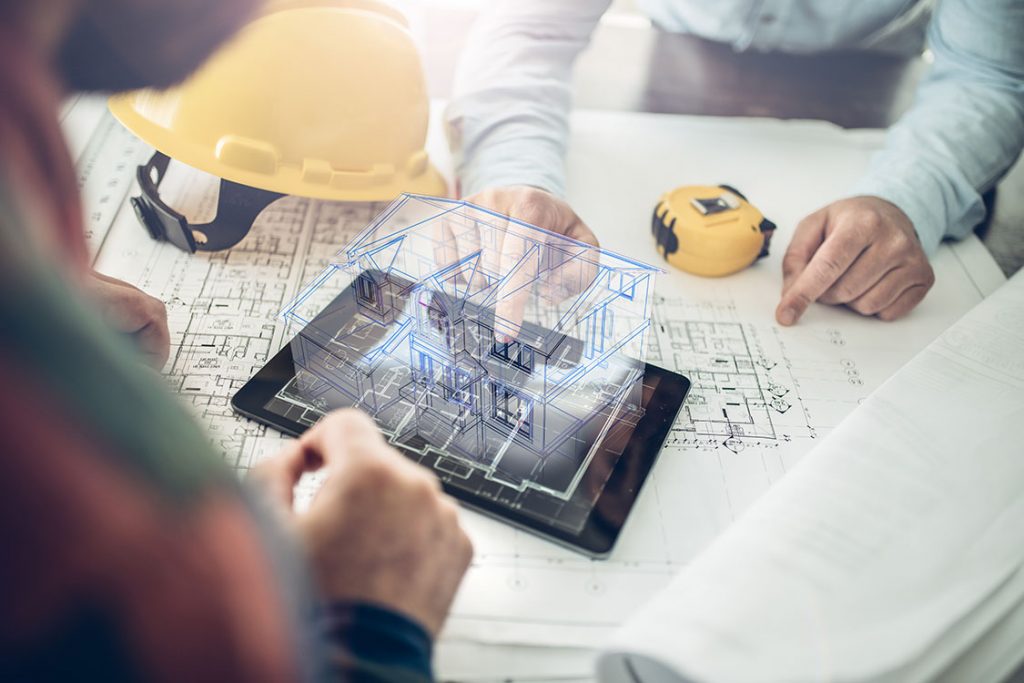
How Digital Transformation is Building the Future of Construction
by Jason Cole

In the last two years, the world has changed as businesses continue to explore what the future of work might look like. Traditional industries such as construction are struggling to adapt to a world where net-zero, diversity of thought and the very real challenge of an aging workforce demographic continue to dominate conversations. To further complicate matters, more than 223,000 experienced workers have left the industry since 2019.
Did you know that there are 2.7 billion deskless workers worldwide? Yet, despite representing 80% of the workforce, technology providers are guilty of forgetting and overlooking traditional industries. As a result, the construction industry is still battling challenges from our analogue age, such as poor organisation, communication, and project management. Thankfully, this is beginning to change.
The large-scale developers and traditional construction companies leveraging technology
Technology is increasingly crucial in making construction sites more efficient, productive, and safe. But far away from the site, SaaS tools are improving productivity by transforming every element of the planning, designing, and management process. In addition, Digital technologies are being used to complement rather than compete with the workforce to help reduce human error in engineering and architecture tasks.
Digital twin technology is enabling construction teams to create a replica of a construction project or even an entire city. These virtual models empower teams to collaborate on a project using Augmented reality (AR) and virtual reality (VR) technologies before work commences in the physical world.
Geospatial technologies, such as laser scanning and drone technology, is helping developerscreate visualisations that can capture accurate measurements and track progress. Building information modelling (BIM) is also increasingly crucial in helping review projects in real time. In doing so, many companies are dramatically improving collaboration between engineers, architects, and subcontractors.
IoT sensors and smart machinery can also improve efficiency on live construction sites. For example, sensors can detect when materials are running low and automatically order more. They are helping reduce the construction site’s waste and carbon footprint by increasing efficiency. From a safety aspect, smart hardhats can already monitor location and temperature and even automatically trigger an emergency call if it detects a worker has fallen.
The start-ups facilitating innovation in construction
Investment construction technology reached $4.5 billion last year, triple the amount invested in 2020. ConTech is a phrase that is often used to describe the many new construction technology start-ups aiming to build a new future for the industry. For example, Cloud Cycle is on a mission to transform the ready-mix industry by digitising concrete, enabling construction companies to reduce operational cost, waste, and CO₂ emissions.
One of the most critical topics in the construction industry is Environmental, Social, and Governance (ESG), which is a set of standards that measures a business’s impact on society and the environment. UK start-up myConsole has built an ESG platform that aims to simplify this process by having all ESG-assigned tasks and activities across a project in one place.
With building sustainable homes of the future dominating conversations, London-based start-up Modulous is reimagining construction to enable developers to build affordable homes that can be built more efficiently and economically on a global scale. In addition, with the rise of construction data gathering pace, Qflow is another UK start-up allowing site managers to make data-driven decisions based on various metrics such as cost, carbon, and quality.
Artificial intelligence and machine learning are also beginning to impact construction with new estimating software tools such as Kreo that help quantity surveyors, estimators, and contractors save time and secure more business opportunities. Although emerging technologies are dominating the headlines, one of the most exciting start-ups is highlighting the art of possible when IoT sensor data and AI converge as UK ConTech start-ups continue to lead the way forward.
How data is reshaping construction
As the industry expands, huge data repositories continue to fill with information on everything from blueprints and building models to communications and cost estimates. Unfortunately, these repositories are often unstructured and difficult to access without the right tools. But an increasing number of SaaS solutions are enabling the construction industry to harness big data.
Data analytics are unlocking powerful insights that until now were scattered in silos across every construction project. Due to the unique problems in the industry, we are also seeing new solutions designed to solve the most significant issues in construction. For example, Hypervine is leveraging AI and blockchain technology to replace guesswork and estimates with data-driven decision-making.
Elsewhere, Fieldwire and Archdesk have created data-driven project management software to meet the construction industry’s unique needs by providing the ability to share real-time updates and design changes. Ultimately, insights unlocked from big data can help reduce risk and waste while increasing efficiency.
Every construction company faces pressure to complete jobs faster and cheaper with a shrinking workforce while also having a proactive focus on safety. Technology will play a critical role in bringing together internal teams and subcontractors. Construction teams are also becoming more agile by leveraging communication tools to document real-time updates from field workers and track data instantly to improve collaboration efforts.
More and more construction firms are embracing technology and are gaining a competitive advantage by unlocking data-driven decision-making that enhances productivity by producing more efficient workflows. These are just a few examples of how the digital transformation of everything is building the future of construction.
Tags: Jason Cole
